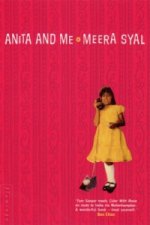
Kód: 04564835
Vulgar Tongue
Autor Fiona Somerset, Nicholas Watson
Deeply embedded in the history of Latin Europe, the vernacular ("the language of slaves") still draws us towards urgent issues of affiliation, identity, and cultural struggle. Vernacular politics in medieval Latin Europe were rich ... celý popis
- Jazyk:
 Angličtina
Angličtina - Väzba: Brožovaná
- Počet strán: 296
Nakladateľ: Pennsylvania State University Press, 2012
- Viac informácií o knihe

Mohlo by sa vám tiež páčiť
-

Anita and Me
11.05 € -23 % -

Head First Web Design
43.21 € -23 % -

GUITAR TUNE BOOK POCKETBOOK DELUXE SERIE
12.37 € -

Toward an Augustan Poetic
21.50 €
Darujte túto knihu ešte dnes
- Objednajte knihu a vyberte Zaslať ako darček.
- Obratom obdržíte darovací poukaz na knihu, ktorý môžete ihneď odovzdať obdarovanému.
- Knihu zašleme na adresu obdarovaného, o nič sa nestaráte.
Viac informácií o knihe Vulgar Tongue
Nákupom získate 110 bodov
 Anotácia knihy
Anotácia knihy
Deeply embedded in the history of Latin Europe, the vernacular ("the language of slaves") still draws us towards urgent issues of affiliation, identity, and cultural struggle. Vernacular politics in medieval Latin Europe were richly complex and the structures of thought and feeling they left behind permanently affected Western culture. The Vulgar Tongue explores the history of European vernacularity through more than a dozen studies of language situations from twelfth-century England and France to twentieth-century India and North America, and from the building of nations, empires, or ethnic communities to the politics of gender, class, or religion. The essays in The Vulgar Tongue offer new vistas on the idea of the vernacular in contexts as diverse as Ramon Llull's thirteenth-century prefiguration of universal grammar, the orthography of Early Middle English, the humanist struggle for linguistic purity in Early Modern Dutch, and the construction of standard Serbian and Romanian in the waning decades of the Austro-Hungarian empire. Here Latin, the "common tongue" of European intellectuals, is sometimes just another vernacular, Sanskrit and Hindi stake their claims as the languages of Shakespeare, African-American poetry is discovered in conversation with Middle English, and fourteenth-century Florence becomes the city, not of Dante and Boccaccio, but of the artisan poet Pucci. Delicate political messages are carried by nuances of French dialect, while the status of French and German as feminine "mother tongues" is fiercely refuted and as fiercely embraced. Clerics treat dialect, idiom, and gesture-not language itself-as the hallmarks of "vulgar" preaching, or else argue the case for Bible translation mainly in pursuit of their own academic freedom. Endlessly fluid in meaning and reference, the term "vernacular" emerges from this book as a builder of bridges between the myriad phenomena it can describe, as a focus of reflection both on the history of Western culture and on the responsibilities of those who would analyze it.
 Parametre knihy
Parametre knihy
Zaradenie knihy Knihy po anglicky Humanities History Regional & national history
43.92 €
- Celý názov: Vulgar Tongue
- Podnázov: Medieval and Postmedieval Vernacularity
- Autor: Fiona Somerset, Nicholas Watson
- Jazyk:
 Angličtina
Angličtina - Väzba: Brožovaná
- Počet strán: 296
- EAN: 9780271058511
- ISBN: 027105851X
- ID: 04564835
- Nakladateľ: Pennsylvania State University Press
- Hmotnosť: 431 g
- Rozmery: 229 × 152 × 21 mm
- Dátum vydania: 15. October 2012
Obľúbené z iného súdka
-

Hundred Years' War on Palestine
12.17 € -23 % -

Ethnic Cleansing of Palestine
12.88 € -23 % -

History of Japan
17.04 € -15 % -

Ten Myths About Israel
13.48 € -14 % -

Strange Death of Europe
15.31 € -20 % -

Decline and Fall of the Roman Empire
6.08 € -18 % -

Secret History
12.17 € -23 % -

God's Playground A History of Poland
68.17 € -

Mayflower
15.62 € -23 % -

How to be a Victorian
14.30 € -23 % -

Plantagenets
13.38 € -28 % -

General's Son
20.49 € -2 % -

Iran: A Very Short Introduction
10.03 € -22 % -

Temples of Karnak
152.39 € -

Cuneiform
11.05 € -23 % -

Twenty Years A-Growing
10.03 € -22 % -

History of Witchcraft in England from 1558 to 1718
18.86 € -

China in Africa
37.13 € -

Islandman
10.03 € -22 % -

Bohemian Paris
16.63 € -17 % -

Lancaster And York
22.72 € -

Alexiad
17.64 € -20 % -

Modern France: A Very Short Introduction
11.46 € -19 % -

Inside Hitler's Greece
20.59 € -14 % -

Diana: Her True Story - In Her Own Words
11.05 € -23 % -

The Fourth Turning
19.57 € -8 % -

The Oxford History of Ancient Egypt
15.31 € -23 % -

Churchill: The Power of Words
15.41 € -20 % -

Palestine
20.28 € -20 % -

Korean History in Maps
27.99 € -9 % -

Great Gatsby (Wisehouse Classics Edition)
16.22 € -36 % -

Viking Way
45.85 € -7 % -

The Thirteenth Tribe
14.80 € -

My Promised Land
18.46 € -

Vanished Kingdoms
19.06 € -21 % -

Age Of Revolution
16.43 € -23 % -

Life and Death of Anne Boleyn
23.43 € -2 % -

Coming of the Third Reich
19.57 € -9 % -

Children of Ash and Elm
18.56 € -23 % -

Europe Between the Oceans
34.28 € -

Socialism Betrayed
19.37 € -19 % -

303 Squadron
18.56 € -23 % -

Ancient Celts, Second Edition
26.57 € -19 % -

Dancing in the Glory of Monsters
15.82 € -22 % -

Battle of Britain: Luftwaffe Blitz (Images of War)
25.66 € -1 % -

Age of Confucian Rule
35.70 € -

Beyond Band of Brothers
16.43 € -23 % -

Benjamin Franklin
18.76 € -12 % -

On China
17.24 € -20 %
Osobný odber Bratislava a 2642 dalších
Copyright ©2008-24 najlacnejsie-knihy.sk Všetky práva vyhradenéSúkromieCookies



 21 miliónov titulov
21 miliónov titulov Vrátenie do mesiaca
Vrátenie do mesiaca 02/210 210 99 (8-15.30h)
02/210 210 99 (8-15.30h)